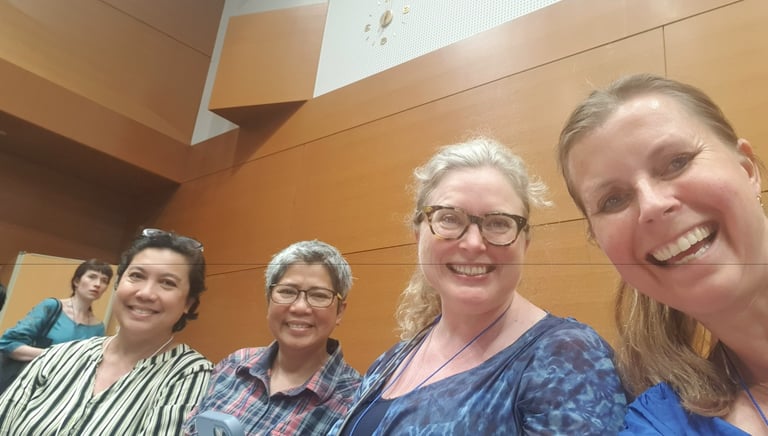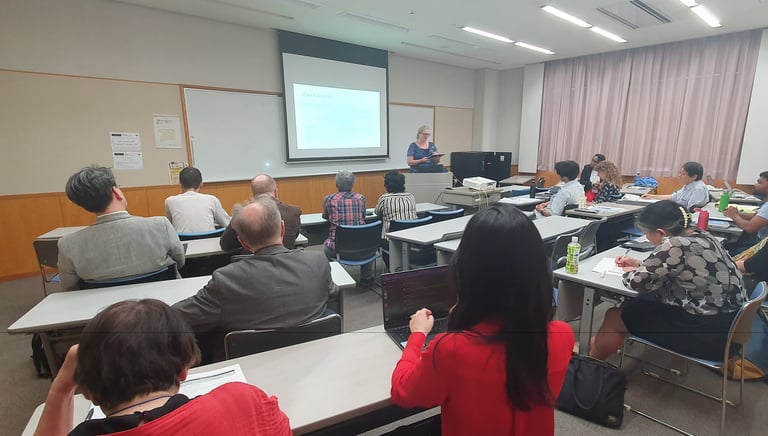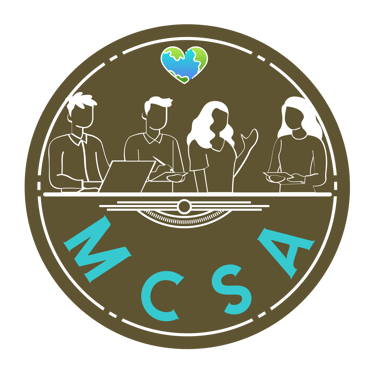MCSA Joins the 23rd Biennial International Conference of the Society for Philosophy and Technological Studies
Tokyo, Japan. On June 7-10, 2023, the Japanese Society for Science and Technology Studies (JSSTS) hosted the 23rd Biennial International Conference of the Society for Philosophy and Technology, under the theme, "Technology and Mobility." The 23rd Biennial Conference of the Society for Philosophy and Technology (SPT2023) commenced on June 7 at the National Olympics Memorial Youth Center, with a focus on the critical nexus between technology and mobility. Hosted by the esteemed Japanese Society for Science and Technology Studies (JSSTS), the four-day conference brought together leading scholars, researchers, and experts from around the world to deliberate on the profound implications of technology on human mobility.



Tokyo, Japan. On June 7-10, 2023, the Japanese Society for Science and Technology Studies (JSSTS) hosted the 23rd Biennial International Conference of the Society for Philosophy and Technology, under the theme, "Technology and Mobility." The 23rd Biennial Conference of the Society for Philosophy and Technology (SPT2023) commenced on June 7 at the National Olympics Memorial Youth Center, with a focus on the critical nexus between technology and mobility. Hosted by the esteemed Japanese Society for Science and Technology Studies (JSSTS), the four-day conference brought together leading scholars, researchers, and experts from around the world to deliberate on the profound implications of technology on human mobility.
The conference aimed to explore the historical influence of technology on human movement and expansion. From the advent of ships enabling transcontinental travel to the proliferation of cars facilitating everyday long-distance transportation, technology has been instrumental in transforming our understanding of mobility. Furthermore, the rapid advancements in communication technologies, such as the telephone and the internet, have shrunk the world, reshaping the way people interact and connect across geographical boundaries.
However, the ongoing COVID-19 pandemic has thrust an additional layer of complexity into the discussion. As global travel ground to a halt, societies turned to information and communication technologies (ICT) to bridge the physical divide. This unprecedented situation has prompted fundamental questions about the significance of in-person interactions and the role of technology in facilitating human connections.
At SPT2023, scholars and participants aimed to reflect upon the multifaceted relationship between technologies, philosophy, and ethics. Despite the attendees’ diversified perspectives on different issues related to technology, one important theme that was never discussed during the conference was citizen science. This innovative approach recognizes the vital contributions of migrants to scientific endeavors, particularly in the field of technology. Part of the MCSA goals is to promote the importance of the diverse skills, experiences, and perspectives of migrant communities to address technological challenges and advance scientific progress.
Founder of MCSA, Love Gonzales Malundo, reflected on the experience as a gauge for the diversity and inclusivity of scientific outputs, ideas, and professionals in different fields to the citizens. Despite the numerous parallel sessions and discussions, there was a general lack of mention of the existing gap between science and society, specifically in the form of citizen participation. Migrant citizen science offers valuable insights into the challenges that individuals and communities face while on the move, consequently helping researchers and policymakers develop more inclusive and equitable technological solutions.
The conference also highlighted the importance of providing equitable access to scientific knowledge, resources, and opportunities for people with disabilities, specifically through the keynote address by Ashley Shew, Associate Professor at Virginia Tech, Department of Science, Technology, and Society. She presented various study narratives about technology from the disability community. It was a promising project for which she received the U.S. National Science Foundation CAREER Grant.
The SPT2023 conference concluded with a call to action, urging attendees to carry forward the discussions and insights gained during the event into their respective domains. As technology continues to evolve at an unprecedented pace, it is imperative to foster an ongoing dialogue that considers the ethical, social, political, cultural, and personal implications of these advancements, particularly in relation to human mobility.
Malundo concluded that acknowledging the significant role of citizens in mainstream science and the integration of migrants in citizen science will definitely result in a transformative potential of technology, which the conference aimed to shape future research, policy, and societal discourse, fostering a more inclusive and sustainable future where technology and mobility intersect harmoniously for the benefit of all. MCSA must have broader exposure and influence to foster collaboration and cooperation between different communities to ensure that technological advancements benefit everyone, irrespective of their mobility status.


Ellen Svarverud, Associate Professor from the Faculty of Health and Social Sciences, Department of Optometry, Radiography and Lighting Design, University of South-Eastern Norway (USN) gave her presentation on Ethical considerations on inclusive and agency-driven development of XR Technologies.
From left to right, Cristiana-Anca Voinov (Ph.D. Research Fellow, Faculty of Health and Social Sciences, USN), Love Gonzales Malundo (Founder and Chairman of the Board of Migrants' Citizen Science Association in Norway), Rosemarie Bernabe (Professor, Centre for Medical Ethics, University of Oslo; Faculty of Health and Social Sciences, USN), Ellen Svarverud ( Associate Professor from the Faculty of Health and Social Sciences, Department of Optometry, Radiography and Lighting Design, USN), and Toril Aagaard (Associate Professor, Faculty of Humanities, Sports and Educational Sciences, Department of Pedagogy, USN).

